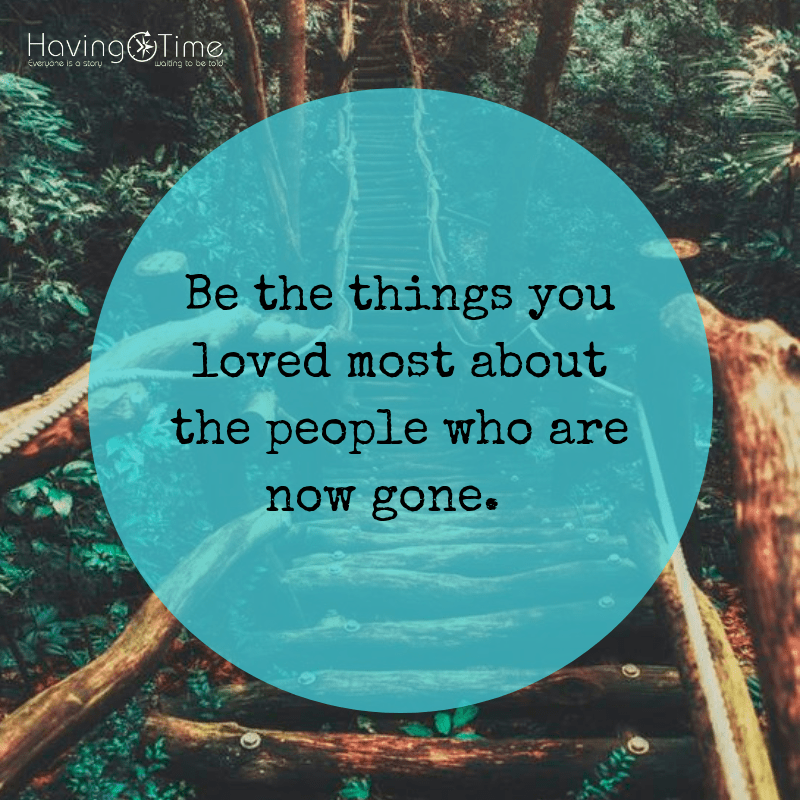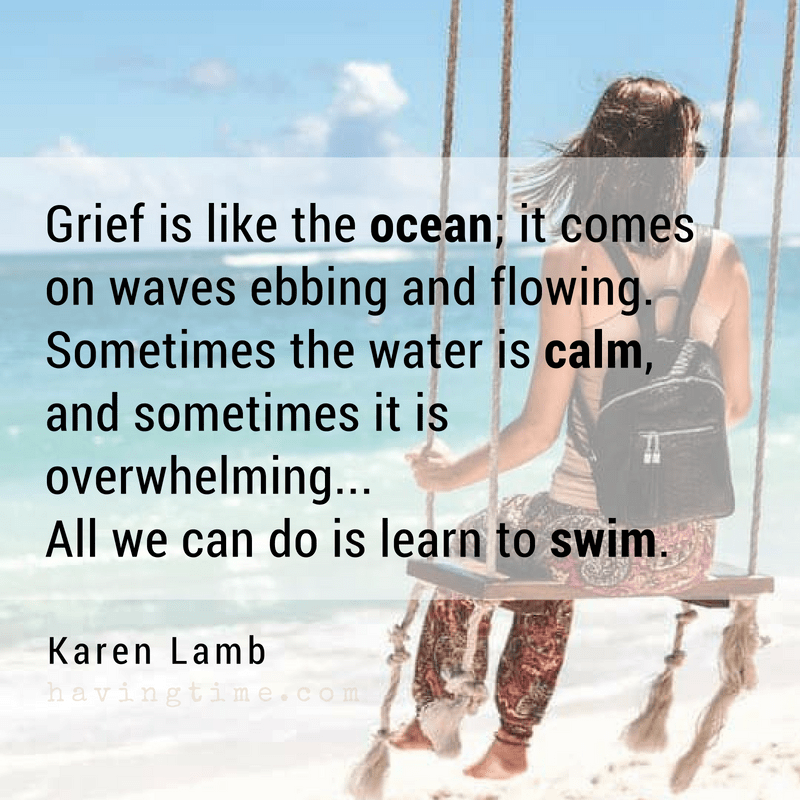How do you cope with grief when you lose someone you love? Grief is one of the hardest things we all have to deal with in our life. I’m a man… I put my hands up, and admit I’m a total novice at talking about my feelings.

There is a sacredness in tears. They are not the mark of weakness, but of power. They speak more eloquently than ten thousand tongues. They are the messengers of overwhelming grief, of deep contrition, and of unspeakable love. – Washington Irving
When one of my best friends died recently I went on a ride I can’t possibly describe. I lived through (and continue to live through) my grief. I’ve also spent a lot of time with the family of my friend. It’s been complicated. My friend James was 24, and although he lived with a terrible, and cruel health condition, that we all understood would limit his life-expectancy, his general outlook made us all think and hope we had more time with him.
When a good friend like James is stolen, a few words can fill the void in our lives. My mind is searching for an answer to the unanswerable questions, like “why?”, but as we know, death is inevitable, and it can visit us at any time.
No doubt, we’ll all lose someone we feel like we can’t live without, and our hearts will be badly broken. Our souls will weep, and no matter what we do, there will be no way to control the hurt.
Grief becomes a scar on the part of our soul that survives. In a lot of cases, we will probably never completely get over the loss of this person. But there might be elements of good news in that loss. It’s like having a broken leg that never heals correctly—it still hurts when the weather gets cold, but you learn to dance with the limp.
How to Cope with Grief When You Lose Someone You Love
When I lost James, it turned into one of the hardest times of my life. Grief is not as heavy as guilt, but it takes more away from you. When someone close to us dies, it brings up our feelings about our mortality. This can be truer when it is someone we are close to. Research suggests that we are often friends with people who are similar to us in health, socioeconomic status, education, and who think like us. So when a friend dies it is a reminder that we will die and, who knows, it could happen soon.
I must admit, it’s a curious ride: I’m a man, so I can resist tears and ‘behave’ very well in the hardest hours of grief, and the presence of others. But then I catch the eye of someone we both knew, or I hear the songs we both enjoyed, or a piece of our work slips into view… and everything collapses…
Grief can destroy you, or it can make you laser-focused. We can decide a relationship was all for nothing if it had to end in death, or we can realize that every moment of it had more meaning than you dared to recognize at the time. But when it’s over, and you’re alone, you begin to see that it was the little things that have mattered the most. The answer to the mystery of existence is the love we share with someone else. Sometimes so imperfectly, and when the loss wakes you, you can’t get off your knees for a long time, driven to your knees not just by the weight of the loss, but by the gratitude for what preceded the loss.
Aristotle described friendship by saying; “What is a friend? A single soul in two bodies”.
Plato reflected profoundly and extensively on the nature of friendship and love, and then thousands of years later psychologists helped us understand why friendship was worth these philosophers’ time.
Did you know there is a 50% increased likelihood of survival for people with stronger social relationships? Yup, people with good friends live longer and are a lot healthier.
But, as painful as losing James has been and continues to be, here are some of the things I do to try and cope. I hope that by sharing these ideas, it gives other people some focus when they go through similar challenging times…

1. Surround yourself with support
We all need loved ones by our side to help us get through the tough times. People who pick us up. People who pick you up when we’re feeling down and remind you that you are a healthy person. They’re also the people you don’t realize are there until the grief hits you. My business partner has been incredibly supportive for which I am grateful. The relatives of my friend, have also been a circle of support, even though they are going through a tough time themselves.
2. Take one day at a time…
Slow down and take deep breaths. Deep breathing can help you relax, let go of stress, and help you focus on the present.
Try to stay grounded in the present. Cycling through the past won’t change anything and worrying about the future won’t break the past.
Learning to slow down and take one moment at a time will help you when your mind takes you places that you don’t want to go. Give yourself gentle reminders to focus on one minute, one hour and one day at a time.
3. Comfort yourself in your sorrow
Comforting yourself is doing something nurturing and kind that helps you feel better.
It’s the little things that can maintain calm, ease, and settle your discomfort. Life’s small comforts can even make hard times more manageable. Comforting can come from going for a walk up to your favorite hill, or listen to your favorite music. Watching your favorite team play, or visiting the cinema.
As little as these things may seem, they will help you feel better.
4. Do something, anything
Sometimes when you feel helpless, the best thing you can do is to find a way to honor the memory of the person you lost.
Perhaps you can orchestrate an event or find a cause that your friend was passionate about and continue that journey.
5. We need to accept that there is no answer
It’s natural to ask the question “why?” over and over again.
Unfortunately, there isn’t an answer to the “why?”.
Terrible things happen to good people, and this is especially true when someone we love passes away.
Part of the healing process is learning to find ways to deal with the unknown and accepting there will never be an answer.
In Conclusion
Grief is a natural response to loss. It’s the emotional suffering we all feel when something or someone you love is taken away. The more significant the loss, the more intense our grief can be. But despite this, it can still be severely misunderstood because most people have been a bit low, a bit sad at one time in their life, and so can’t see what all the fuss is about.
If you know someone who has suffered a loss, make sure you are part of their circle of support.
If you feel grief, reach out to the people you know who can be your circle of support. Don’t do it alone. Do it with the other friends who are still there in your life.
Grief is like an open wound; it will heal. Like Nemo said in the Pixar movie: Just keep swimming.



